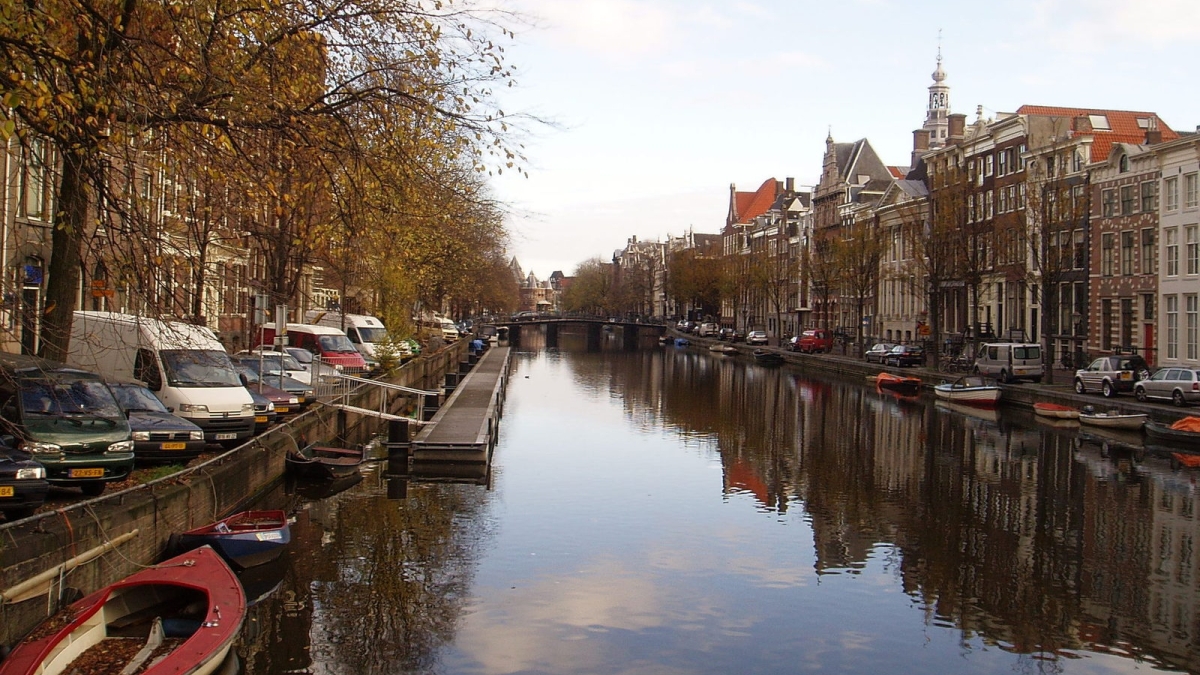The best thing about the Fulbright grant won by Matt Ykema is that it allows him to be immersed in his research.
“I do not have any mandatory classes or outside programs. This means I can focus my efforts on my research,” said Ykema, who earned bachelor of science degrees in molecular biology and economicsfrom the W. P. Carey School of Business and College of Liberal Arts and Sciences from Arizona State University last year. He is studying at the Academic Medical Center in Amsterdam this year.
“I spend about 8 to 10 hours in my lab, usually 9 a.m to 6 p.m., doing experiments, making viruses, reading papers and writing publications.”
What started out as a curiosity about his heritage turned into a life-changing opportunity.
“I have always been curious about the Netherlands because of my Dutch last name and family roots,” said Ykema, who is from Chandler.
“Once I began looking into the country, I soon learned that it was one of the top countries in the world for research on viruses and gene therapy, which is what I am hoping to research professionally in the future,” he said.
“A Fulbright scholarship was a great way to connect my cultural and professional interests.
Ykema answered some questions about his Fulbright year:
Question: Can you give an overview of what you’re doing in the Netherlands?
Answer: I am working in Amsterdam at the Academic Medical Center as a full-time researcher. I am researching the use of viruses as a way to cure genetic diseases in the liver. Viruses are usually thought of agents of disease, but my research focuses on using molecular biology techniques to understand how these viruses work and engineering them to make them non-pathogenic and deliver a desired therapeutic gene.
Q: What is the week like for you?
A: After working in the lab, I spend about two hours in the gym in order to stay physically active. The rest of the evening I cook, read, play video games, and work on applications for graduate school fellowships.
On the weekends, I like to travel throughout the Netherlands, go to professional gaming tournaments, practice urban landscape photography, go to cultural events such as museum exhibits, festivals, and electronic music concerts.
Q: What’s been the best part of your experience?
A: The research I have been working on has been the best part of my experience. My lab is working on multiple novel viral systems that I would not have been able to gain experience with anywhere else. The best part is that I do not have to worry about homework, deadlines, or requirements for a degree-based program, so I can focus on learning as much as possible while generating my results.
Q: Have there been any challenges?
A: The only challenge I had was completely unrelated to the Fulbright program. About a week after arrival, I had a burst appendix that nearly killed me. This delayed staring my work for two weeks, but I did get a very intimate understanding of the functioning of the Dutch medical system.
Q: What will you bring back from your experience that will help you in your career — or your life?
A: My time here has allowed me to become much more independent, as both a person and a researcher. The Fulbright program offers assistance transitioning to a new country, but this was a good opportunity to experiment with my hobbies, lifestyle, and professional life by doing as much as possible by myself. I was able to learn what kind of research methods and general lifestyle works best for me.
Q: What’s next for you, after you return?
A: I will start a PhD program in biochemistry at Rice University in Houston, Texas, where I will use the skills I learned doing my Fulbright to continue doing virology research. After getting my doctorate, I hope to transition into working in the biotechnology or pharmaceutical industry in either a research or consulting capacity.
Q: What would you tell someone who is contemplating applying for a Fulbright?
A: If you have ideas for a unique project or know of a program in a country that you are culturally interested in, then the Fulbright program is a great match regardless of your field or background. It facilitates your ability to connect to a new culture while working on a unique project, or add international elements to work you have done previously. Very few programs offer the amount of support and networking that the Fulbright does.
More Local, national and global affairs

How ASU research is helping first responders
Arizona State University’s faculty members are studying how to improve the jobs, health and well-being of first responders, and also applying their research through direct training to help these…
ASU honors Sun Devils, local organizations with Social Work Month Awards
Arizona State University’s School of Social Work recently honored a total of 29 students, faculty, staff, alumni and local community organizations with its annual Social Work Month Awards.The…

ASU's USAID projects provided economic benefits to US
For more than a decade, Arizona State University has helped people around the world — and advanced interests in the United States at the same time — through its collaborative projects with the U.S.…


